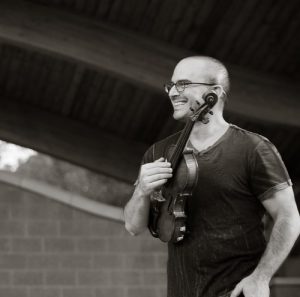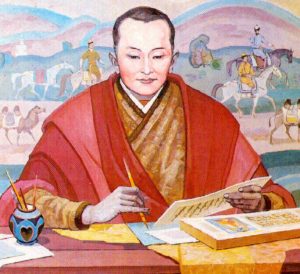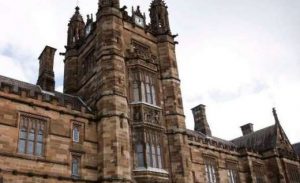
Love and hate, patrician pride and populist passion, liberation and oppression, the story of modern Sri Lanka is a story of contrasts and contradictions, tensions and harmonies that are still playing out today. Poets, playwrights, and journalists who comment and reflect on such febrile matters of the state and the heart are not objective outsiders peering into the looking glass, they are players in the game as well, and as invested as anyone else in the outcomes they want and the ideals they champion.
The Sri Lankan civil war ended in 2009 with the annihilation of the Liberation Tigers of Tamil Eelam (LTTE) and suppression of Tamil resistance that remains controversial to this day. I was about to complete my final undergraduate year, and I remember reading voraciously about the final days of the LTTE’s leaders and the brutal aftermath of the Sri Lankan army’s reprisals with fascination and horror. If I, a relative outsider to the most important Theravada bastion in Asia, could remember something relatively removed from my own life so vividly, then it is no surprise that it serves as the thematic grounding of Ramya Chamalie Jirasinghe’s most recent play, Water for Kings. The play debuted at the Kolamba Kamatha Theatre in Bandaranaike Memorial International Conference Hall, Colombo, during the 25th anniversary of the theatre company that Ramya works with, Mind Adventures Theatre.
Ramya won the Gratiaen Prize in 2023 for her book Father Cabraal’s Recipe for Love Cake, which marks her out as one of the most articulate and impactful English-language writers in Sri Lanka. As a woman with relatively close ties to Sri Lanka’s post-colonial governing classes, and with opinions as articulate and pointed as any leading figure, Ramya began working on her play in 2010. Soon after completing it, she gave it to Tracy Holsinger, the founder-director of the theater company Mind Adventures. Interestingly, she did the first public reading only in 2022 at the site of the protest movement known as the Aragalaya during the economic collapse of Sri Lanka, which lead to the ousting of the president at the time. In other words, the play appears to speak as a piece of work that stands against authoritarianism and oppression and to relocate easily to different contexts.
“Water for Kings was inspired by real events that took place in Sri Lanka when the LTTE closed the sluice gates of the Maavil Aaru anicut during the last phase of the war, and prevented civilians in the area from accessing water. This episode highlighted the role of resources in war and statecraft to me,” Ramya highlighted during a visit to Hong Kong. This was Ramya’s first visit to the Asian hub, which has a distinctly different postcolonial experience to Sri Lanka. Hong Kong, like all societies, is full of its own tensions. But post-independence Sri Lanka was torn up from within, physically and militarily, in a reflection of its complex religious and socio-cultural configuration. “In Sri Lanka, both the LTTE and the state repeatedly used control of land, resources, and rights to maintain hegemony over civilians who were trapped in the war zones,” she says. “Also, in the years to come, water scarcity will be one of the biggest ecological crises and is likely to be the cause of devastating conflicts and loss of life. The play attempts to discuss these two themes.”

Ramya’s setting is fascinating to me, as it is technically a fantasy world but serves as an allegory of how power dictates who enjoys resources. “The play is set in a mythical kingdom, where two brothers have to decide whether they allow or deny a minority population access to water. There is a moral line separating the two: one brother aligns with the religious leader, the head priest, who opposes integration and equity for all citizens to maintain his role in the power structure of the kingdom, while the other aligns with natural laws of the world: laws of nature and humaneness.” She continues: “My play refers to the destruction that humanity can inflict on itself when this Earth’s fragile ecological balance is disrupted due to human greed and ambition.”
Water for Kings was well-received by the audience, and reviews in Sri Lanka’s English-language media have been effusive. Ramya says that it is primarily because, as Thusitha Jayasundera who worked on the performance script of the play told her, “There is a real hunger in Sri Lanka for works drawn from Sri Lanka and written by people living in this setting.” And no surprise; Sri Lanka is a complex place that demands sophisticated storytellers. This is true even of Buddhism, which in its Theravada form is one of the longest surviving Vinaya threads in the world.
This is undeniable; yet Sinhalese nationalism would tend to condense the complicated story of the tradition into simplified soundbites. The simplification is not the problem. Rather, it is the reflexive marriage of Buddhism to worldly attachments, such as notions of what it means to be Sinhalese or to belong to the country—and by implication, who are the outsiders to be rejected and even persecuted.
As Ramya tells me, Sri Lanka is where you will find the Buddhist tradition in all its possible forms and corruptions. These range from the forest practice that is faithful to the Buddhist code of conduct and scriptures, to the highly institutionalized sects where Buddhist monks wield enormous amounts of political and financial power. The lay Buddhist citizen can choose what they want to follow or align with.
But Ramya adds that when the tradition is misinterpreted by its leaders and gives conflicting and divided messages, she feels a play like this can remind people that political and material power are ephemeral, if not destructive, and that timeless and universal qualities such as truth, compassion, and forgiveness, as emphasized in Buddhism—and most other religions—are better able to create a more humane and inclusive world.
Aside from this commentary about Buddhism, the play’s political nature has given it an interesting life outside the theater. Ramya recalls how the play was quoted on political platforms during the campaign trail of the recently concluded presidential election in Sri Lanka: “I think its transferability to any setting is the key to the audiences being able to relate to it, whatever their heritage.”
Like many post-colonial authors, Ramya uses the global language of English as her frontline weapon, her primary tool to articulate the universal experience of her society to the rest of the world. For me, her writing is the vessel to tell the story of not only the nation, but of Sri Lankan Buddhism, which represents the oldest contiguous Vinaya transmission in the Buddhist world. Water for Kings is only the beginning of reckoning with Sri Lanka’s turbulent emergence from the civil war—as recent disastrous events have indicated, there remains a desperate need for enlightened voices like those of Ramya’s to continue to educate, inform, and edify.
See more
Ramya Jirasinghe on authoring ‘Water for Kings’ (the morning)
Related news reports from BDG
Buddhists in Sri Lanka Lead Interfaith Protest against Israeli War in Gaza
Related features from BDG
An Interview with Ven. K. L. Dhammajoti: The Landscape of Buddhist Studies in Sri Lanka and Southeast Asian Concerns
Tensions Between Literary Creation and Buddhist Practice—Ramya Jirasinghe Talks about Poetry, Dharma, and Why She Writes














